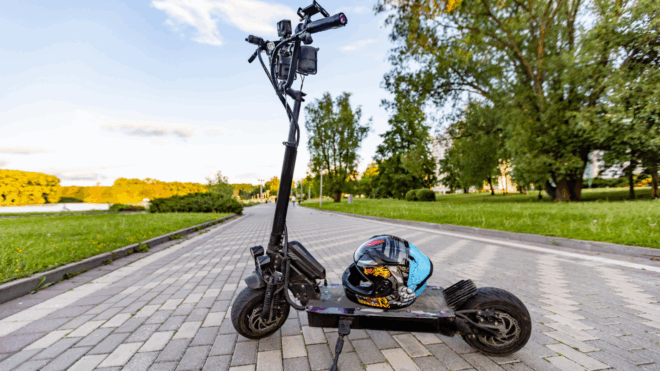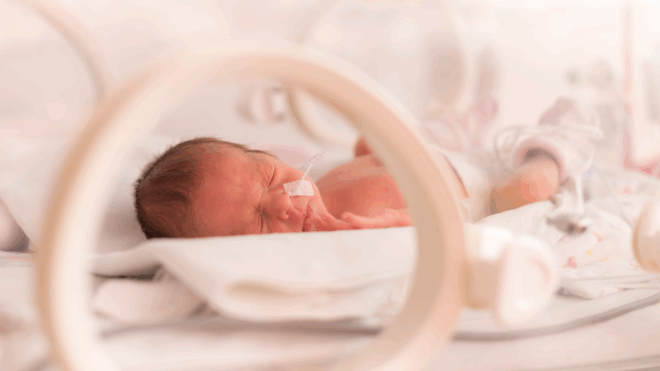We care about how safe our babies' strollers are. But have you ever considered how a stroller can affect your baby's brain? You may be surprised at how much it matters. Neuro-psychologist Sally Goddard Blythe recently spoke about this at a What About the Children conference. She's concerned that babies are spending more and more time in strollers, car seats, and other equipment. Too much time in a front-facing stroller can limit your baby's speech and physical development.
This reminds me of a funny scene in the movie Away We Go where an uber-crunchy mom scolds another couple for even thinking about putting their baby in a stroller. "Why would you want to PUSH! your child away?!?" she says dramatically. So what's the big deal?
Most of us need strollers to get around with our babies. Even moms who prefer baby carriers sometimes use strollers when they're out for longer stretches of time. Blythe isn't saying "no strollers" — she's just cautioning us to use them in moderation. Basically, don't use the stroller or car seat as a babysitter. It's not so much about what's wrong with front-facing strollers; it's about what your baby isn't getting when they're in one:
1. Face-to-face interaction with parents.
2. The opportunity to move around and explore.
As you've probably heard many, many times, your interaction with your baby extremely important. All that eye contact, singing, and talking isn't just icing on the parenting cake. It's essential to your child's mental development. It can have far-reaching effects, even into elementary school.
As Blythe puts it:
Attention, balance, and co-ordination skills learned during the first 36 months of life support cognitive learning and have been linked to performance on SATs at school. Infants need opportunity for free movement and exploration, whether that is tummy time, cuddling, or rough play.
For example, studies show that babies in rear-facing strollers have more advanced language skills than babies in front-facing strollers. (The problem is rear-facing strollers tend to be more expensive. But it's something to think about.)
Even learning to move their bodies in the simplest ways helps prepare babies' brains to solve problems later on in life. Crawling can have an effect on how your baby learns how to read.
So again — it's not that strollers are bad. It's that we should avoid using them when we don't really need them. Let your baby get out and explore the world. Make sure you're spending plenty of time face to face with your baby, talking and singing. Your baby's brain needs it.
Have you ever paid much attention to how much time your baby spends in a stroller or car seat vs. in tummy time?
Image via Vasile Cotovanu/Flickr




